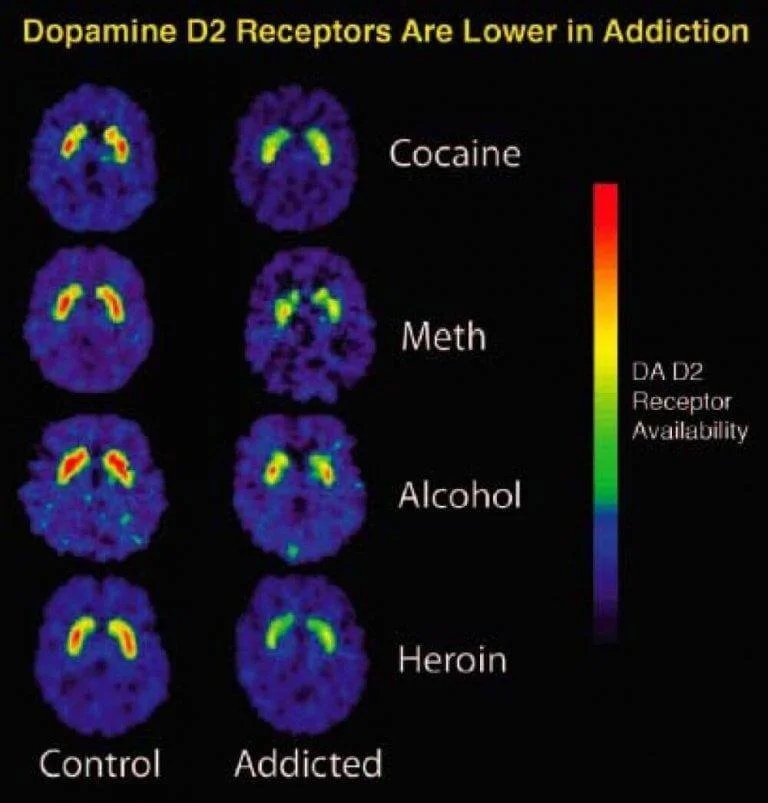Cocaine Addiction Rehab Treatment
The Perry Clayman Project (PCP) specialise in professional treatment for Cocaine abuse and addiction. We provide inpatient detox and comprehensive cocaine rehabilitation for those in need.
Cocaine addiction is very common in the UK and rising at an alarming rate. In 2016 the death toll for Cocaine drug poisoning reached a staggering 371 deaths in England and Wales. This is the highest number of Cocaine-related deaths since records first began in 1993.
Cocaine has the ability to kill even the fittest and strongest of individuals. There have been many cases of people in their 20s, suffering from multiple heart attacks due to Cocaine addiction.
If you or a loved have a problem with Cocaine, it is vital that you seek professional addiction help and treatment without delay.

Facts and Stats About Cocaine Drug Addiction in the UK
Before we explore cocaine addiction in greater depth, first lets look at some facts and stats surrounding drug abuse and cocaine drug addiction in England and Wales for the year ending March 2020 (these stats were collected prior to lockdown and have been largely unaffected by the COVID-19 pandemic):
1 in 11 adults aged between 16 and 59 years of age had taken drugs (9.4%).
1 in 5 adults aged between 16 and 24 years of age had taken drugs (21%).
3.4% of adults aged between 16 and 59 years of age had taken Class A drugs (e.g., cocaine
ecstasy).
7.4% of adults aged between 16 and 24 had taken Class A drugs.
These stats are based on individuals who reported taking drugs – the reality is that these numbers are far higher in the UK right now.
Approximately 5.5% of the world’s population are illicit drug users.
In 2018, over 35-million people worldwide suffered from drug use disorders (with many more still).
The UK has one of the highest drug-related death statistics in Europe with 76 deaths per million population.
Again, going off facts and stats only gives you a limited view of the harrowing reality of drug use in the UK right now. In any case, it’s clear to see that there is a serious drug misuse problem that needs to be addressed.
But first, let’s look at your situation. Whether you are concerned about your own cocaine addiction, or you suspect that a loved one is suffering from substance abuse, read on and we will tell you everything you need to know.
Cocaine, What It Is and How it’s Used
Cocaine is a stimulant drug with powerful euphoric effects. It is an illegal Class A drug under The Misuse of Drugs Act 1971.
Cocaine, sold in a fine white powdered form, is usually snorted through a straw or rolled banknote. It can also be swallowed, or diluted and injected directly into the bloodstream.
The potent white powder is extracted from the leaves of the Coca plant. However, by the time it has hit the streets, its potency will have been diluted with other, often poisonous, substances known as cutting agents.
This is why it has never been more important to take extra care when it comes to drug use in the UK. With the cost of living on the rise and people struggling to make ends meet, there’s an even higher chance that the cocaine that eventually reaches you has been cut significantly. Here’s a look at some of the more common cutting agents used for cocaine:
Laundry detergents
Laxatives
Boric acid
Caffeine
Creatine
Procaine.
These are often used because they each come in a fine white powder and can easily be indistinguishable from cocaine. While they are not all necessarily lethal, they are not the kind of substances you want to put into your body – especially when you have no idea what they might be.
The Effects of Cocaine
Cocaine has very desired effects and has a reputation as being a “Champagne and Cocaine” party drug. Whilst some can take this drug recreationally, those predisposed to addiction will go on to develop an addiction to its effects.
The desired effects produced by Cocaine include:
Euphoria
Heightened Senses
Increased sexual desire
Confidence
Invincibility
Increased concentration and alertness
Increased energy
Loss of appetite.
Of course, a list like that sounds very appealing, however, you mustn’t fall prey to the charms of short-term pleasures because the negative effects that go with it are not to be desired.
Negative Effects and Risks of Cocaine Use
Cocaine use carries many risks to the user; the more you use, the greater the risk to your life. These effects are exponential and long term cocaine addiction never ends well.
Most Cocaine addicts find themselves all alone, using for hours, if not days on end. This kind of abuse and addiction will come with many negative effects and consequences – physically, mentally, and socially.
Negative effects of Cocaine use include:
Spending money you don’t have
Psychosis
Chest pain (angina)
Heart Attack and heart muscle damage
Stroke
Respiratory problems and arrest
Dissolving of the septum (the piece of cartilage that separates nostrils and supports the bridge of the nose), caused by snorting cocaine repeatedly.
Depression
Aggression
Violence
Insomnia
Anxiety
Delusion
Hallucinations
Coma
Death.
As you can see, this list is far less appealing to the one above. And these effects can have a knock-on effect in every other aspect of your life.

How Long Do The Effects Of Cocaine Last For?
Once taken, especially if snorted, smoked or injected, the effects are almost immediate. The user will be hit with a rush of euphoric stimulant effects that will last approximately 30 minutes. Less potent than Crack Cocaine, but the effects last for twice as long.
Once the effects wear off, there will be a craving for more and a comedown period. This leads those who are addicted to go on binges that can last for days, or keeping themselves topped up so they can continue to function.
Once those long benders draw to an end, the inevitable comedown rears its ugly head and believe us, it is not pleasant. The symptoms of a cocaine comedown include:
Agitation
Increased irritability
Restlessness
High blood pressure
Intense cocaine cravings
Mood swings
Exhaustion
Aches and pains
Sinus discomfort (runny/blocked nose)
Depression
Self-loathing
Feelings of regret
Suicidal ideation
Increased appetite.
Cocaine And Mental Health
Cocaine not only impacts on your body but can also seriously affect your mental health. It has been reported by the Advisory Council on the Misuse of Drugs, that up to 88% of individuals seeking treatment for Cocaine abuse or addiction present psychosis-related symptoms.
Whilst mental health symptoms tend to be resolved once Cocaine has been stopped, there is a risk that they will be permanent. If this happens, ongoing psychiatric and medical treatment will be needed indefinitely.
Cocaine use is often sought in response to stress and the more the drug is consumed, the greater the response to stress will become. It’s a perpetual cycle that rapidly declines.
The fact is, cocaine – and substance abuse in general – changes the brain. While there may well be some temporary pleasures with casual use, over a longer period of time, these pleasures are accompanied by all manner of problems (as touched on above).
What’s more is that the longer you are exposed to cocaine, the more it diminishes the orbitofrontal cortex (OFC), which leads to poor decision making, an inability (or unwillingness) to accept the negative consequences of cocaine use, and a lack of self-awareness and insight.
In other words, the more you use cocaine, the more likely you are to find ways to justify your behaviour, even as your life falls to pieces around you.
Rest assured, there is treatment for cocaine addiction available and with our help, you can take back control of your life, overcome the negative mental health issues tethering you to your cocaine addiction, and work toward a clean and healthier future.
Cocaine Addiction and Dopamine
Long term Cocaine addiction prevents the natural release of Dopamine from the brain. Dopamine is mother nature’s feel-good chemical. It motivates us, keeps us feeling balanced, increases with pleasurable activities, helps us sleep better and regulates our emotions.
Repeated exposure to Cocaine causes the brain’s Dopamine receptors to eventually become solely reliant on Cocaine for the production of Dopamine. Without Cocaine the individual addicted will not be able to feel any pleasure at all. At this point, their addiction will spiral dangerously out of control.
If you are in a situation where either you have been using cocaine for a long time, or one of your loved ones has, then we strongly suggest that you seek cocaine addiction rehab immediately.
The longer the addiction persists, the more dangerous it becomes. Nip it in the bud as quickly as possible however, and you can get back to living life and finding enjoyment in healthy and fulfilling pursuits, rather than a dangerous habit that will slowly destroy your life.
Cocaethylene – When Alcohol and Cocaine are Taken Together
Cocaethylene is a drug that is formed in the liver when Alcohol and Cocaine are taken together. It combines the effects of both and is very dangerous and addictive. Taking Cocaine will enable you to drink far more alcohol without feeling drunk. Combining the two also increases the euphoric effects. This makes it very damaging to the liver and increases the potential for drug poisoning and becoming dual addicted to both drugs.
The same applies with smoking cigarettes as well. Often, cocaine users will feel an urge to smoke more cigarettes, thus causing even more damage to your body in the process. Similarly, nicotine can increase cravings of cocaine, making the likelihood of relapse far greater among regular smokers.
Treatment For Alcohol and Cocaine Addiction – Cocaethylene
PCP rehab provides bespoke treatment plans for individuals who have become addicted to both Alcohol and Cocaine. We provide an inpatient medical detox that is carefully monitored and an addiction treatment programme that treats all aspects of Cocaethylene addiction.
We treat each person as a whole individual, helping them to heal mentally, physically, emotionally, socially and spiritually. We also comprehensively treat those presenting with dual diagnosis symptoms.
If you need help and treatment for Cocaethylene addiction, please do not delay in seeking help. Cocaethylene addiction is both destructive and life-threatening.
We will put together a personalised cocaine addiction treatment programme that has been designed especially for you.
Signs of Cocaine Use in a Family Member
If you are concerned that a family member may be using Cocaine and possibly have an addiction, there are signs that if spotted you should not ignore:
White powder residue around the nostrils
Unusually chatty, confident, exertive, energetic or paranoid
Staying up, or out, all night
Discovering Cocaine paraphernalia
Money or valuables going missing
Withdrawal from family and long-term friends
Secrecy, dishonesty, manipulation and aggression
Nasal and sinus damage.
If you suspect that one of your loved ones has a cocaine addiction, figuring out what to do next can be difficult. Our advice is to try and remain calm before you take any action. Read on and we will share some advice on how to broach the subject with someone who is in desperate need of cocaine addiction treatment.
How to Help a Cocaine Addict
When approaching a Cocaine addict to help, remember that they are very sick. Voice your concerns for their welfare and why you feel they have a problem. Offer to help them seek professional treatment, and support them in doing so.
If they are willing to access help, please call and talk to us about treatment options immediately. If they are not willing, reassure them there is professional help available and that they can approach you at any time.
Starting the conversation can be difficult. Here are some tips on how best to proceed when broaching the conversation of drug addiction treatment with a cocaine addict:
Find a moment where you are both level-headed. If you can clearly see that your loved one has recently returned from a heavy weekend or a long cocaine and alcohol binge, when wait. Wait until they have slept it off, showered, and eaten. Once they appear to be down to earth and able to speak, then you can approach them.
Leave the stigmatisation at the door. It’s easy to fall into the stereotypes of cocaine users, but the fact is, people suffering from cocaine addiction come in all shapes and sizes. It’s not a character flaw, it’s no indication of being ‘less intelligent’ or anything to that effect. It’s more likely a case of the individual having been under some pressure at work or in other aspects of their life, made some poor decisions, and ended caught up in a deadly disease; addiction.
Educate yourself. The more research you do prior to this conversation, the better positioned you will be to help them. When you understand the nature of cocaine addiction, you will be able to see just how much they are struggling. With this empathy and understanding by your side, the conversation will be far easier to navigate.
Air your feelings. Knowing where to start such a tricky discussion is the hardest part, but we have found that starting with how you feel is always the safest bet. Be honest.
Be forward and direct. Try not to mince your words and get straight down to brass tacks, but don’t be too pushy. There’s a delicate balance.
Be kind. There’s a good chance that there is a lot going on that you don’t know about.
Be patient. Let them finish their sentences. Give them time to respond to you. Listen intently! This is your chance to demonstrate to them that you are willing and prepared to hear what they have to say and to take it seriously.
Set clear boundaries – and enforce them. If you feel that the only time you want to communicate with them about serious issues is when they are sober, then stick to your words. Having a discussion with the negative impacts of cocaine with someone who is high on cocaine is a recipe for disaster. They will not be in a position to listen, care about, or respect what you have to say.
Believe what they have to say! Cocaine addiction and dishonesty aren’t mutually exclusive. Yes, drug addicts may feel compelled to lie when backed into a corner, but when you are speaking to the clear-headed version of your loved one in an open, patient, and honest discussion, the likelihood of them lying to you will be far lower. So listen to them and believe them. The only thing that could cause them to lie is if you come across as being angry and ready to blow up at them.
Avoid telling them what to do. As effective as our cocaine addiction treatment and rehab therapies are, they only work when the addicted individual is open to it. It has to be their idea! By all means, share your findings and talk about the amazing cocaine addiction treatment programme that you’ve discovered, but don’t force it upon them. Highlight the benefits and ensure them that you are standing right beside them, ready to offer your love and support every step of the way.
Reach out to us. If you are feeling overwhelmed by the pressures and you have no idea where to begin, please do not hesitate to contact us. We will gladly offer our advice and support on how best to proceed.

Cocaine Rehab and Addiction Treatment
Professional treatment and rehab for Cocaine addiction are often life-saving. Our staff are passionate about helping addicted individuals to break free from addiction.
We have a dedicated team of addiction professionals including doctors, counsellors, psychiatrists, psychologists, therapists and support workers.
We offer inpatient short term and long term programmes and supported sober living accommodation through our Move On housing project.
We have a number of exemplary, CQC registered, affordable rehabs across the UK, including a luxury London rehab.
Recovery from Cocaine is possible and we offer a highly effective Cocaine treatment programme for those that are suffering.
How Cocaine Addiction Treatment Works
So, how does it all work? There are two main approaches we take to cocaine addiction and those are outpatient treatment and inpatient treatment.
Outpatient
Outpatient cocaine rehab is ideal for those who have a mild dependency on cocaine and are otherwise functioning well enough. Perhaps you’ve been using casually for a few months and you feel as though you may be developing an addiction and wish to seek some additional support. In that case, outpatient treatment would be well-suited to you.
With outpatient therapy, you can stay at home with your friends and family, continue your work commitments, and visit group therapy sessions and individual counselling in your own time. As far as treatment for cocaine addiction goes, the outpatient approach can be effective, however, for those with a much deeper-seeded addiction, a different approach will be required.
Inpatient
Inpatient or residential rehabilitation is typically the recommended approach, particularly for those who have been struggling with cocaine addiction for some time and have been unable to kick the habit – despite multiple attempts at getting clean.
Cocaine abuse over a long period can have a devastating impact on your life but the physical and psychological dependency is one of the more dangerous aspects. This is why in some cases, a thorough medically supervised detoxification process is essential.
When you seek treatment with us, first, you will go through an intake process. This is where our medical team will carry out an initial physical and mental health assessment. From there, treating cocaine addiction in the individual will be much easier, as we can put together a cocaine rehab programme that has been tailored especially to your unique situation.
Once settled in, the detoxification process begins. This is where we clear your system of all illicit substances, while keeping you hydrated and monitoring your vitals.
There will be a number of uncomfortable withdrawal symptoms throughout, however, with round-the-clock care from licenced and highly qualified medical staff, you’ll be in the safest hands.
After you have successfully flushed the cocaine and alcohol out of your system, we can get started on the next phase.
To treat cocaine addiction properly, the next step is to figure out what drove you to abuse the drug in the first place. Cocaine dependence can occur for a wide variety of different reasons, and it’s our job to work with you in order to figure out what those driving factors were.
After extensive individual counselling, we can then better understand your mental health and the nature of your cocaine abuse. This is a game-changer.
Following that, you’ll take part in group therapy sessions. Group therapy is great because you can speak in an open and understanding environment free of judgement from those who do don’t understand your situation. It’s an important part of cocaine rehabilitation.
There are many other treatments available to recovering addicts and they vary from one treatment centre to another. It also depends on the specific needs of the individual in question. In any case, we only use tried, tested, and approved methods and have an excellent track-record for recovery.

Cocaine Addiction Help
If you or a loved one have an addiction to Cocaine and need help, we provide a supportive and non-judgemental environment where the miracle of recovery takes place every day.
Having an addiction is nothing to be ashamed of; it is a chronic relapsing brain disease that severely impacts on your judgement, decision making and impulse control.
If you suffer from Cocaine addiction, you will have lost control around your drug taking: this can naturally lead to very severe consequences, even death.
PCP rehabs can help you today, we facilitate urgent admissions.
Simply contact us for a free consultation. Zero judgement, no preachiness, just an open and honest discussion about your next steps.
Rest assured that we will receive your call with nothing but love, patience, and compassion. We are here for you.

